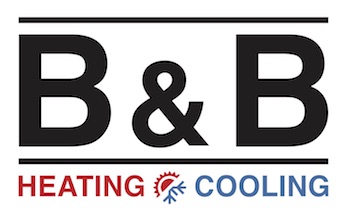
We spend lots of time indoors. In fact, the Environmental Protection Agency (EPA) has approximated being indoors accounts for 90% of our time. However, the EPA also has found your indoor air can be three to five times more polluted than outdoors.
That’s because our houses are firmly sealed to enhance energy efficiency. While this is great for your utility expenses, it’s not so good if you’re amid the 40% of the population with respiratory allergies.
When outside ventilation is limited, pollutants such as dust and volatile organic compounds (VOCs) could get trapped. As a result, these pollutants may worsen your allergies.
You can improve your indoor air quality with fresh air and regular housework and vacuuming. But if you’re still struggling with symptoms during the time you’re at your residence, an air purifier might be able to help.
While it can’t get rid of pollutants that have landed on your furnishings or carpeting, it might help purify the air circulating around your home.
And air purification has also been scientifically confirmed to help lower some allergic symptoms, according to the American College of Allergy, Asthma and Immunology. It might also be useful if you or someone in your household has a lung condition, including emphysema or COPD.
There are two kinds, a portable air purifier or a whole-home air purifier. We’ll examine the advantages so you can determine what’s correct for your residence.
Whole-House Air Purifier vs. Portable Air Purifiers
A portable air purifier is for a single room. A whole-house air purifier works alongside your heating and cooling unit to purify your entire residence. Some models can work on their own when your HVAC system isn’t on.
What’s the Best Air Purifier for Allergies?
Go after an option with a High Efficiency Particulate Air (HEPA) filter. HEPA filters are placed in hospitals and offer the greatest filtration you can find, as they trap 99.97% of particles in the air.
HEPA filters are even more beneficial when used with an ultraviolet (UV) germicidal light. This powerful combination can eliminate dust, dander, pollen and mold, all of which are general allergens. For the greatest in air purification, think over a system that also has a carbon-based filter to eliminate household vapors.
Avoid getting an air purifier that makes ozone, which is the top ingredient in smog. The EPA cautions ozone may aggravate respiratory issues, even when discharged at small settings.
The Allergy and Asthma Foundation of America has created a listing of questions to consider when buying an air purifier.
- What can this purifier remove from the air? What doesn’t it remove?
- What’s its clean air delivery rate? (A higher amount means air will be freshened faster.)
- How often does the filter or UV bulb need to be changed]? Can I finish that by myself?
- How much do replacement filters or bulbs cost?
How to Decrease Seasonal Allergy Symptoms
Want to receive the {top|most excellent|best] outcome from your new air purification system? The Mayo Clinic advises completing other measures to decrease your exposure to problems that can cause seasonal allergies.
- Stay indoors and keep windows and doors shut when pollen counts are elevated.
- Have other family members trim the lawn or pull weeds, since this work can worsen symptoms. If you are required to do these chores yourself, you might want to consider trying a pollen mask. You should also bathe without delay and put on clean clothes once you’re finished.
- Avoid drying laundry outside.
- Turn on the AC while at your house or while in the car. Consider installing a high efficiency air filter in your house’s heating and cooling equipment.
- Balance your home’s humidity levels with a whole-house dehumidifier.
- Hardwood, tile or linoleum are the best flooring materials for lowering indoor allergens. If your house has carpet, install a HEPA filter on your vacuum cleaner.
Let Our Specialists Take Care of Your Indoor Air Quality Requirements
Want to take the next step with adding a whole-house air purifier? Give our professionals a call at 314-325-7552 or contact us online to get an appointment. We’ll help you locate the best system for your residence and budget.
